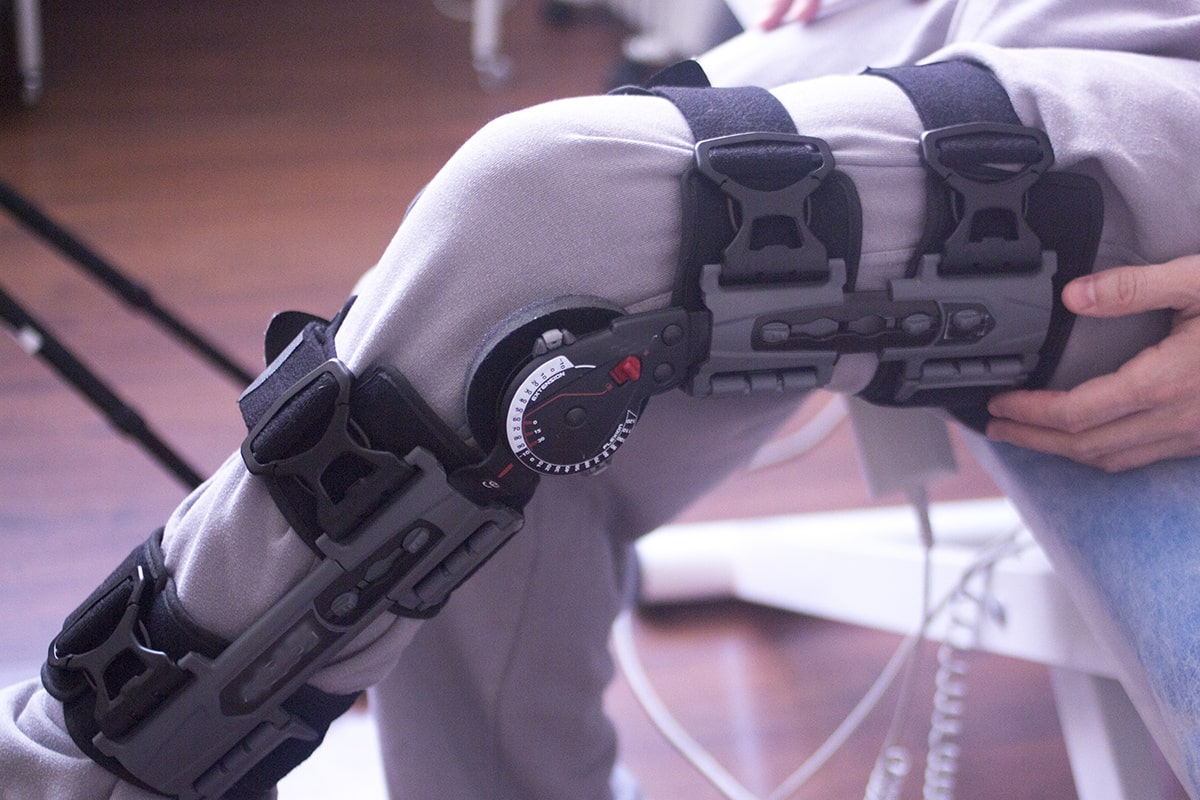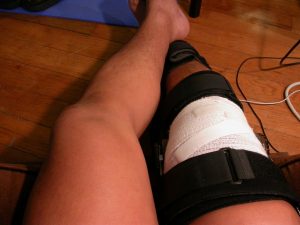

Let’s start with a scenario . . .
Well, you finally did it. You managed to turn that “recreational” version of lawn darts into American Gladiators (a true American institution if I’m being honest, but I digress). It’s mayhem out there. You are frantically running through the yard dodging falling darts because you and the crew decided that this game really needed some real danger to spice it up. After all, being 18 years old can get boring from all that responsibility at times. Alas, you make a hard cut to evade a series of falling darts (think of the falling arrows scene from the movie 300) and ultimately end up face down in a heap on the front yard next to the Christmas decorations.
You’ve sustained a knee dislocation, rupturing both cruciate ligaments (ACL/PCL), disruption of your LCL and Posterior Lateral Corner (essentially the joint capsule/popliteus), and a bit of meniscal damage. You have no idea what most of that means, but you know it isn’t good. You’re a very athletic person, and it just so happens that spring baseball, college recruitment, and future athletic participation is a goal of yours.

You need to have surgery quickly to manage the relative instability of your knee, which will likely involve a long road ahead.
But hey, you’re optimistic because you have a great surgeon who does this kind of stuff frequently. You see her after the surgery and she tells you, “Well, the first part is done. Now comes the real struggle: you start Physical Therapy next week!”
You pull up Google Maps, find the closest PT to your home and school, and give them a call. You tell them you have to get an appointment next week because your doctor said it’s imperative you start PT soon after the surgery. The voice on the phone reports no openings for the next month. So, you find another clinic by random and start asking for the first available, hoping it is next week.
Finally, you get a hit! Unfortunately, Chris, the PT you are slated to see, really doesn’t see much of this type of thing. The clinic is a suburban outpatient facility that primarily services a slower pace of individual, and Chris has been hitting home runs in chronic low back pain and total joint replacements for the last 15 years. He is incredibly popular in the community and recommended by family friends, but the clinic has a very “traditional” PT feel to it, with little in the way of strength and conditioning equipment.
You hobble over to the table and begin your bombardment of questions:
“Have you seen this before? How long until I can take this brace off? Can I put any weight on my leg? Do I have to keep the stockings on? When can I drive? Will I be ready for performance camps in eight months? The doctor told me about the surgery, but I didn’t understand. Can you help me? Why do I have to have another surgery? Do I need to start bending it? . . .”
How would it make you feel if Chris turns to you and says, “Well to be honest, I’ve actually never seen this before. Would you like me to call your doctor’s office and find out some of these answers?”
Do you think your experience would be different if Chris responded by saying, “Don’t worry, I see a fair bit of this type thing. I’ll be happy to answer your questions.”
Mine would.
———-
I have been in outpatient sports orthopedics for a while, and it truly disappoints me when I hear Physical Therapists criticize the management of post-operative care as “mindless and simple” because it lacks “the diagnostic component of the practice.” In reality, this couldn’t be further from the truth. Post-operative care can require the same competence, the same assessment skills, and the same critical thinking breadth as any other patient population. Stay with me a second—I know I’m ruffling some feathers right about now, but it has a point.
I recently had a great conversation with a good friend and colleague of mine who just had a very involved, intense surgery. This friend has been in Physical Therapy practice quite a while; he is very intelligent, very well read, and very well researched, but he has not spent much time in the post-operative domain. He chose to consult with me prior to his surgery, specifically about surgeon, location, and expectations after the surgery. I see quite bit of these types of surgeries and was happy to provide insight and information for him.

After the surgery, he had quite a few concerns and questions that he actually felt embarrassed about asking me, like he somehow should have known the intricacies of the surgery and the recovery process. He and I had a really good conversation, and we thought others could benefit from hearing how it went.
———-
The conversation started with his revelation, being on this side of the patient/practitioner experience, that this stuff was much more involved than he had given it credit.
We have somehow stratified patients by difficulty, and I think it has hurt us all. All patients can be difficult. The patient with chronic spine pain can be just as difficult as the patient with a multi-ligamentous knee reconstruction. They both require tough choices and mediated responses tailored to the individual, which are rooted in clinical experience and past education. The primary difference revolves around the practitioner’s prior experience more than anything else. It is impossible to fake or shortcut that. Ask any student fresh out of school. Everything is hard . . . It’s all new and it’s all hard.
If you take a clinician who has spent his/her entire career in outpatient orthopedics and put them in an outpatient neurological facility specializing in spinal cord and stroke rehabilitation, I am sure you will see that same student fear resurfacing. By no means does it imply he/she is insufficient as a practitioner. It simply shows the value of specialization.

I like to think about things in the context of medicine. If I needed a knee orthopedic surgery, I would see a knee specialist who does a high volume of these procedures with good outcomes. I certainly would not see a neurologist or a dermatologist. Consider that the next time you ask your friends which neurologist, orthopedist, or pediatrician you should visit. Would you want your child to see the physician who “dabbles” in a few areas, or the one who manages spina bifida specifically?
Medicine has been practicing this way for years. There is simply too much information in too many different areas, requiring too many different skill sets and practice patterns to be specialists in them all. It is time we embrace that model and support those who are championing a field of study, like clinical research or human performance. I’m not too fond of a carpenter putting the screws in my ankle fracture just because he has experience with a screwdriver, and I doubt you feel much different.
It is my opinion that the experiences of our patients are greatly impacted by our experiences and education as practitioners. I think it strengthens our position in medicine and in society.
Let our internal specialists champion their domains!





